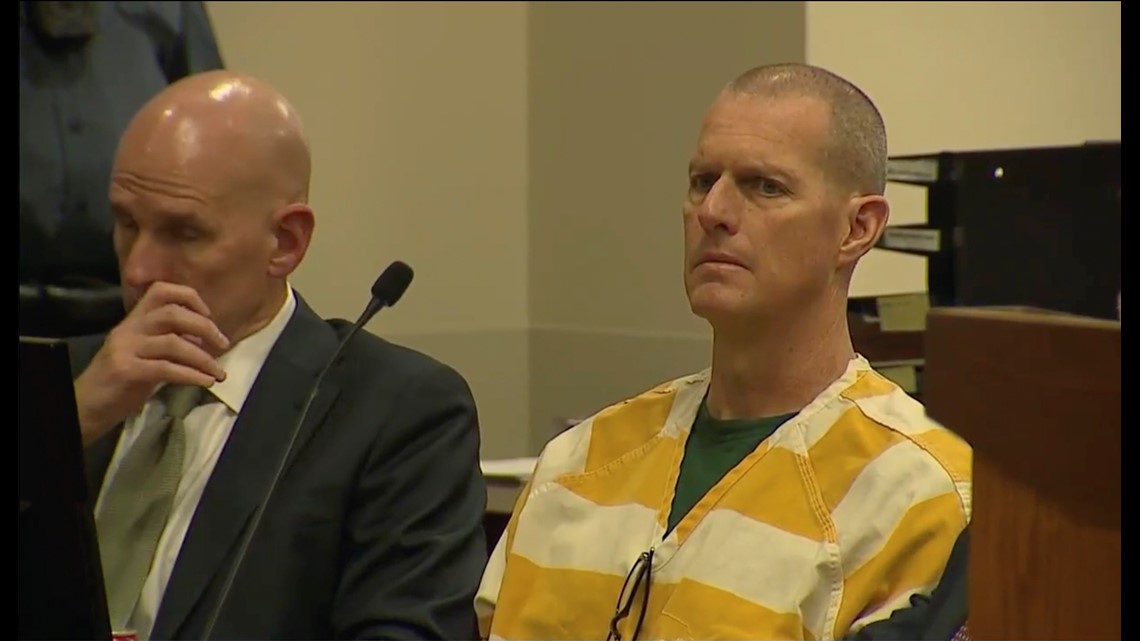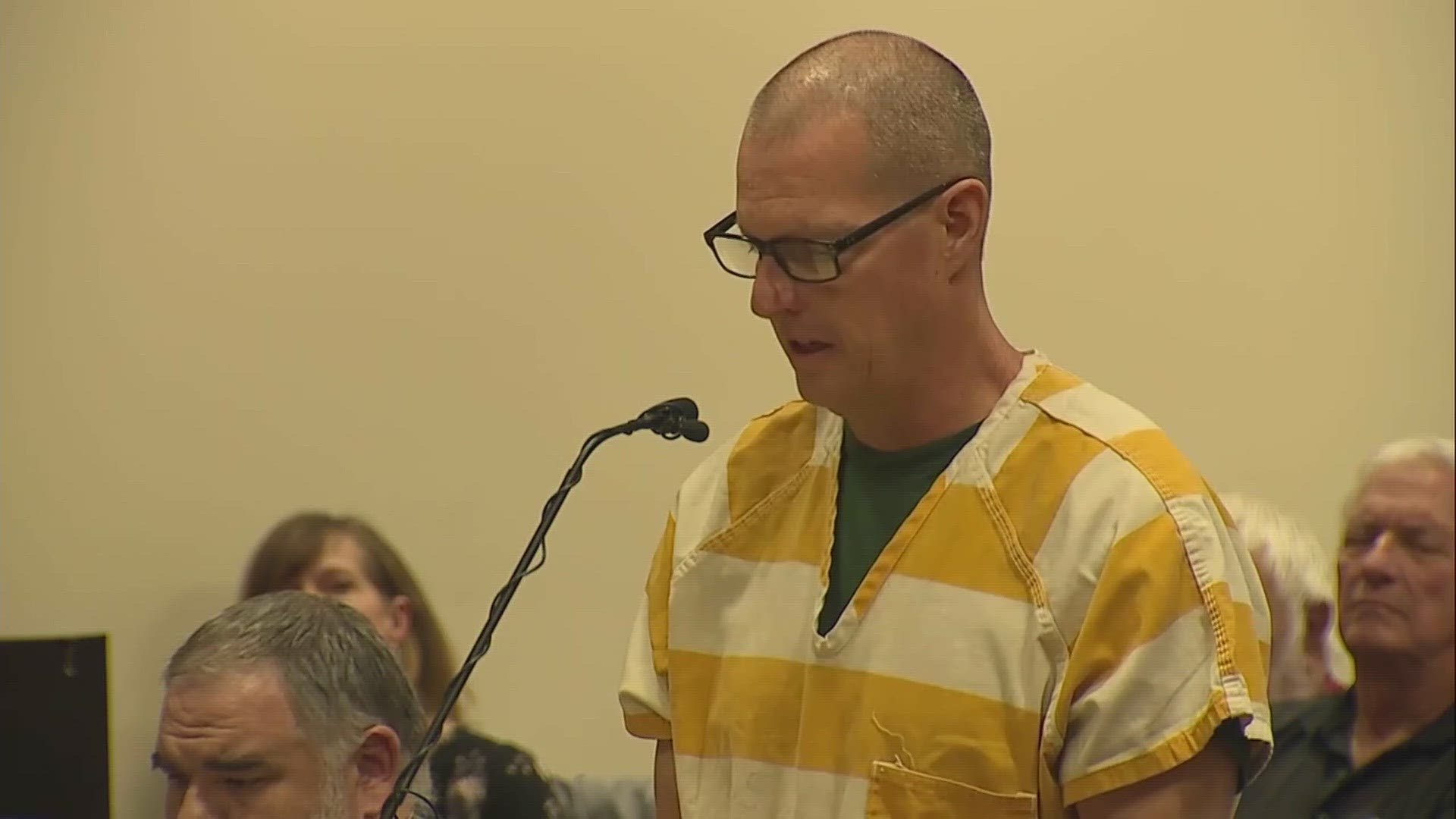AURORA, Colo. — A judge on Friday sentenced paramedic Peter Cichuniec who was convicted in the 2019 death of Elijah McClain to five years in the Department of Corrections, which is essentially the minimum sentence for his second-degree assault conviction.
"Minimum, the bare minimum always?" questioned Elijah's mother, Sheneen McClain, after the sentencing. "No. We deserve better, we deserve more."
In December, Cichuniec and Jeremy Cooper were each found guilty of criminally negligent homicide following a weekslong trial in Adams County.
The jury found Cooper not guilty of second-degree assault with intent to cause bodily harm and not guilty of second-degree assault for administering drugs without consent. The jury found Cichuniec guilty of second-degree assault for administering drugs without consent and acquitted him of second-degree assault with intent to cause bodily harm.
Judge Mark Warner sentenced Cichuniec to five years in the Department of Corrections (DOC) for the second-degree assault conviction, after concluding the conviction carried a mandatory DOC sentence.
He received a one-year sentence for the criminally negligent homicide charge, which will be served concurrently, and will get credit for the 70 days he's already been in custody.
Once released, he will be on parole for three years.
"I'm just so glad it's over. I can't even imagine what Elijah experienced, you know. I can't even imagine," Sheneen McClain said. "I'm just glad this part is over."
> Warning: The video below contains language some people may find offensive.
McClain was first contacted by three Aurora officers on Aug. 24, 2019, after someone called 911 about a man who was "suspicious" and wearing a ski mask. Within seconds of contacting McClain, the first officer grabbed him, and a struggle ensued. McClain was forcibly taken to the ground and placed in a carotid hold, which cut off oxygen to his brain for a short time.
He was then handcuffed and restrained on the ground for roughly 10 minutes before being injected with the ketamine. His heart stopped and he later died.


During their trial, prosecutors argued that neither Cooper nor Cichuniec assessed McClain before concluding that he was suffering from excited delirium, a condition which, to believers, is life-threatening and is marked by severe agitation and imperviousness to pain.
"They want to blame their inhuman actions on their inhuman training but the reality is that they could have done something simply by saying stop hurting my patient," Sheneen McClain said.


Under the protocols, that prompted them to inject McClain with ketamine. He was given the largest dose allowed, one that was meant for someone weighing roughly 80 pounds more than McClain.
"Elijah was unconscious for an extended amount of time when he was held down and injected with ketamine which made sure he did not wake up," Sheneen McClain told the court.
Before Cichuniec's sentencing, numerous people, including his wife and two sons, spoke on his behalf. They all described him as honest and said he had a "selfless dedication" to serve others. Cichuniec also spoke before the court and said he was remorseful about what happened and wished he could change things.
"I'm very sorry Elijah McClain is no longer with us. And I mean that from the bottom of my heart," he said. "Ms. McClain tragically lost a son. And we also lost a patient, and I don't take that lightly. I always want to know what happened. What could have been done different? Or simply, why did they die? I was never able to convey that message during my testimony that's why as a lifesaver with a servant's heart it sickens me that the protection had enough nerve to say in their closing arguments I showed no remorse for Elijah or this call."
> Watch the full sentencing below:
Others who spoke for him attempted to shift the blame for McClain's lax training or noted that Cichuniec – while the highest-ranking member on the scene – was not the one responsible for patient care.
"Is it justice to hold the [paramedics] responsible for a tragic outcome when they must determine in seconds or minutes which protocol they are obligated to follow? Or may this be a call to change the protocol not destroy the livelihood of those that follow them," said Dennis Hollister, a now-retired firefighter.
Cichuniec has 49 days to appeal his conviction and 126 days to request a reconsideration of his sentence. Due to his conviction of the sentence enhancer, the DOC is required to complete an evaluation and send it to the court after at least 118 days of confinement. At that point, a motion could be filed asking the court to convert his sentence to a different type of sentence. That could result in a sentence reduction.
Cooper is set to be sentenced next month.
The Adams County district attorney declined to charge anyone in connection with McClain's death but in 2020, after numerous questions were raised about the incident, Colorado Gov. Jared Polis appointed Attorney General Phil Weiser as special prosecutor, and he reopened the investigation. He took the case to a statewide grand jury which returned indictment against five men.
The paramedics were the last of five to go to trial. In the first trial, a jury returned a split verdict for Aurora officers Randy Roedema and Jason Rosenblatt. Roedema was found guilty of criminally negligent homicide and third-degree assault.
In January, he was sentenced to 14 months in jail - but is eligible to serve that time as work release. He's recently appealed his conviction.
That same jury acquitted Rosenblatt of all charges. Officer Nathan Woodyard was acquitted in a separate trial.
SUGGESTED VIDEOS: Elijah McClain death

